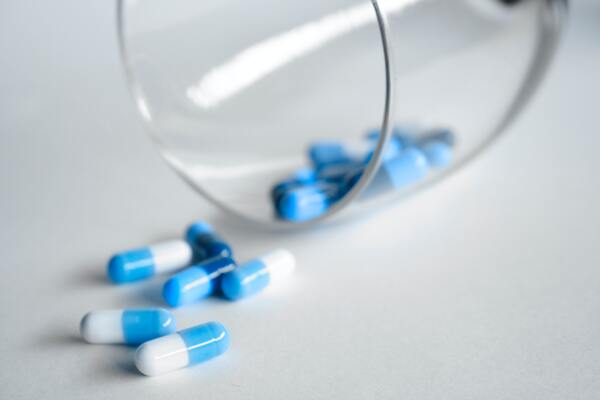This article explores the 7 steps of the cycle of addiction. If you want to help someone with an addiction or are concerned about your own addictive behaviour, you will want to understand the stages of addiction.
Making changes to addictive behaviour now can prevent a more serious problem from addiction developing.
Seven Stages Of Addiction
Substance abuse is a serious problem that causes the brain and the body to become dependent on drugs. Prolonged drug use causes substance tolerance making the user ignore all the signs and continue using the drugs.
There is a common misconception that addiction does not exist or it only exists in the user’s character or personality. That’s not the case.
Someone can’t use drugs or drink alcohol for a day or two and get addicted. It takes time for someone to develop an addiction; the easiest way to cope with it is by seeking help. Just like chronic diseases, an addiction occurs in a series of stages which then turn into a cycle of addiction, treatment, withdrawal, and relapse.

It is possible for addiction stages to occur simultaneously and in a short period, maybe weeks, months, or years. If addiction signs are recognized early, it is much easier to deal with the problem. Here are the seven stages of addiction:
1. Initiation
During the initiation stage, the person tries a drug for the first time. It can be as quick and simple as smoking marijuana, cigarettes, or having your first drink.
Although the person is unaware of the danger ahead, the effects of drugs can be witnessed. The initiation can also happen to people who have used drugs in the past but did not develop dependency.
They start or rekindle the addiction cycle as they test other drugs to find the right one or achieve certain results. Peer pressure, family problems, drug availability, and curiosity are common reasons people start using drugs.
2. Experimentation
After trying and using the drug severally, the user starts experimenting with the drug. During the experimentation phase, the user tries to understand how the drugs work, the different ways of using them, and how it impacts his life. Most people use drugs for pleasure or combat stress. Since there are no cravings, the frequency of use depends on the person’s character and reasons for abusing the drug. The user is not dependent on the drug and can easily stop using it.
3. Regular use
Although regular use does not mean the person uses the drug daily, there is a usage pattern. At this stage, the person relies on certain triggers, for example, loneliness or stress, to use drugs.
In an advanced addiction stage, the user may narrow down his choices to one or several drugs. With regular drug use, the person’s daily life is disrupted. It is possible to notice changes that could negatively affect a person’s life.
For example, after smoking marijuana or drinking alcohol, the individual might miss work/school or show up hangover or high. Depending on what feels right at the time, the person might prefer taking the drugs alone or with others.
Quitting at this stage is harder, but it is possible if the user is disciplined and determined to stop.
4. Risky use
After taking drugs for some time, the person starts engaging in risky behaviors. The effects of drug use become noticeable at work or school.
Showing up at work high or hungover becomes a regular occurrence because they regularly drink alcohol or use drugs. At this point, the person might start taking riskier approaches in life, like driving under the influence.
The person might not realize he has a drug problem; however, those around him know and realize he has a serious substance abuse problem. At the risky use stage, the person might:
- Start borrowing or stealing money to buy drugs
- Try to hide drugs or when using drugs
- Neglect their responsibilities
- Become a loner
- Change doctors regularly, especially if they are using prescription medication
- Hang out with newer friends or old friends who use drugs
- Try to disguise drugs when using them, for example, carrying alcohol in a bottle of water
Most users do not accept the fact that they have a drug problem at this stage. Instead, they try to justify their drug use when caught or asked about it. A delicate approach is necessary to avoid pushing them away.
5. Dependence
At this stage, substance abuse is neither for recreational nor medical purposes. The user primarily depends on drugs to function.
The individual builds tolerance making it hard for him to perform regular tasks without using the drugs. Users realize they have a drug addiction problem, and some seek help.
However, others opt to continue using drugs because it is the easiest way of dealing with withdrawal symptoms. Dependence could be psychological or physical.
While some people rely on drugs to function, others have a mindset that they need to use drugs to function. If someone is physically dependent on drugs, they can shiver, tremble or sweat when they have not taken the drug.
On the other hand, psychologically dependent people fail to think clearly or reason until they get high. Either way, the person needs to use drugs to continue thriving and operating as he used to before addiction.
6. Addiction
At this stage, individuals feel like they cannot deal with life without their drug of choice. Ergo, they completely lose control and leave everything to chance.
At this point, users become lonely, try to hide their drug use problem, and get angry when asked about anything related to substance use.
Some prefer avoiding friends and their families to avoid questions or because they feel like they are being judged unfairly.
If you or someone you love has a substance use disorder, it is crucial to seek help in any way possible. The side effects of drug abuse are catastrophic to the user, loved ones, and society at large.
7. Crisis
In the final addiction stage, the user is out of control. Since the user cannot control their actions or choices, drug use can be fatal. Fortunately, most users know and understand the risks at this point, and they accept help.
Overcoming an addiction is a possibility. However, the user must be willing to seek and accept help from family and professionals.
After the crisis stage, the user can seek treatment, overcome addiction and turn their lives around! Seeking help from experienced therapists and doctors can help overcome an addiction regardless of where you are in the cycle of addiction.
We hope this article was able to answer your questions about: What are the 7 steps of the cycle of addiction?
If you want to discover more information about addiction, follow the link to our other pages on this topic.






